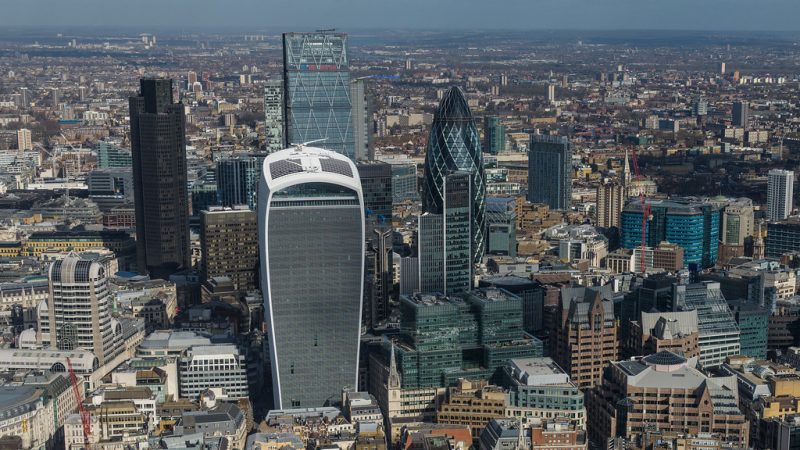'It is only the visible hand of government policies that is condemning people to poverty and hardship.'

Prem Sikka is an Emeritus Professor of Accounting at the University of Essex and the University of Sheffield, a Labour member of the House of Lords, and Contributing Editor at Left Foot Forward.
British people are facing the biggest decline in their living standards since the Second World War. The Chancellor’s Spring Statement, next week, is an opportunity to deliver much needed relief, reset the economy and undo the damage done by neoliberal policies.
The crisis is hitting every home. Energy prices are rising 14 times faster than wages and people expected to find an extra £38bn to keep the lights flickering.
Food prices are expected to rise by 15% and 8.5 million households are in serious financial difficulty from fuel bills. One in ten is experiencing food insecurity.
Wages are not keeping pace with inflation. Public sector workers face an average pay cut of about £1,750 once inflation is taken into account.
Despite the much heralded triple-lock on the state pension, 2.1 million retirees live in poverty and 1.25 million are women. Malnutrition (or undernutrition) affects over 3 million people, including 1.3 million retirees. Around 25,000 retirees die from cold as they have to choose between heating and eating.
Twelve years of never-ending austerity has suppressed wages and destroyed savings. The median household gross savings in the UK is £12,500 and 25% of households have less than £2,100, leaving many to wonder how they will survive beyond the next month.
At December 2021, the personal debt is around £1,765.6bn. Student debt has hit £161bn and is subject to the interest rate of retail price index (RPI) plus 3%. The general interest rate has just risen to 0.75% and expected go even higher, increasing the cost of mortgages and borrowing.
Even before the latest crisis, some 14.5 million people, including 4.3 million children were living in poverty. Some 18.4 million individuals have annual income of less than £12,570. Some 6.2 million people survive on annual income of less than £9,500. Rather than helping, last October the Chancellor cut Universal Credit by £20 per week, equivalent to £1,040 a year, from 4.4 million families.
People’s ability to manage the crisis is sapped. The post-Covid and Brexit economy isn’t going anywhere and in January it barely grew by 0.8%. Any return to growth requires that people have good purchasing power.
The UK government has numerous choices. It is the only major country to impose higher taxes on people amidst a cost of living crisis. It must abandon the planned 1.25 percentage point increase in national insurance and hikes in income tax.
Wages, the state pension and benefits must rise, at least in line with inflation. It needs to impose windfall taxes on banks, supermarkets, oil, gas and energy companies and use the proceeds to cushion the rising energy costs.
Emphasis must be on social justice, eradicating poverty and reducing inequalities. The wealthiest 10% of households hold 43% of all the wealth; in comparison the bottom 50% hold only 9%. 42% of all disposable household income is in the hands of 20% of people, while 7% goes to the lowest-income 20%. There should be no income tax or national insurance on individuals on the minimum wage. It makes no sense to tax the poorest and then ask them to queue up for Universal Credit.
The burden of tax needs to shift to the richest. The poorest 10% of households pay 47.6% of their income in direct and indirect taxes, compared to 33.5% by the richest 10% of households.
Various tax anomalies and perks for the select few must be abolished. Capital gains are taxed at the rate 10-28%, where earned income is taxed at marginal rates of 20%-45%. By taxing capital gains at the same rate as earned income and charging national insurance on it too, raises around £25bn a year. Indeed, all unearned income must be taxed at the same rate as earned income.
Currently, earnings between £9,568 and £50,270 are subjected to a 12% national insurant charge. Incomes above that attract a charge of only 2%. By extending the 12% charge to all income, an additional £14bn a year can be raised.
Around two-thirds of the £40bn a year tax relief on pension contributions goes to individuals paying income tax at the rate of 40% and 45%. By reducing the relief to 20%, the basic rate of income tax, the government can level the field and also raise £10bn.
In addition to the above, additional resources for redistribution and investment in public services can be raised by wealth tax, financial transaction tax and by clamping-down on tax avoidance. HMRC says that it fails to collect £35bn of taxes a year.
Twelve years of low inflation and interest rates have not produced higher investment in productive assets, mainly because the corporate sector has little appetite for long-term, risky investment. That gap needs to be filled by the state with investment in new and green technologies to create skilled jobs and transform the economy. Governments which handed £895bn of quantitative easing to speculators should have no difficulty in finding resources.
There is no invisible hand of fate. It is only the visible hand of government policies that is condemning people to poverty and hardship.
Left Foot Forward doesn't have the backing of big business or billionaires. We rely on the kind and generous support of ordinary people like you.
You can support hard-hitting journalism that holds the right to account, provides a forum for debate among progressives, and covers the stories the rest of the media ignore. Donate today.



